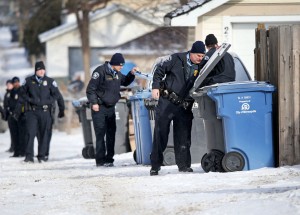 One man’s trash is another man’s treasure. We’ve all heard that one before. And the way most laws currently read, we have no right to an expectation of privacy when it comes to our trash – especially trash that sits outside in front of our homes on the street. Law enforcement officers are well within their rights to rummage through our garbage at will.
One man’s trash is another man’s treasure. We’ve all heard that one before. And the way most laws currently read, we have no right to an expectation of privacy when it comes to our trash – especially trash that sits outside in front of our homes on the street. Law enforcement officers are well within their rights to rummage through our garbage at will.
What about important documents?
Important documents should be shredded in your home or taken to a facility that can shred and dispose of them for you. Other items can be taken directly to a disposal facility where they are rendered unidentifiable.
Your Fourth Amendment Rights
According to the Fourth Amendment, members of the public are protected from “unreasonable searches and seizures” without an officer having a search warrant issued and signed by a judge. In general, this means law enforcement officers at any level, including federal, state, local, and government cannot simply enter a person’s home or business without probable cause or a warrant. However, this protection does not apply to anything you put in the trash cans out by the curb.
Many people carry receipts, notes, pieces of paper, and any number of things they plan to dispose of at a later time in their pockets. According to the law, these items are also protected under the Fourth Amendment, meaning that law enforcement officers cannot legally search a person or seize any items in a person’s pocket or in sealed trash bags in the back of a parked car without a warrant or they risk being in violation of the person’s Fourth Amendment rights.
According to the law, your right to privacy on your property extends out to what is called a “curtilage” or the area the immediately surrounds your home. This so-called “curtilage” does not however extended as far as the curb where you routinely place your trash for pick up. Since federal courts have stated that a person does not have a “right to privacy” regarding trash left on the curb for pick up, law enforcement has free reign on rummaging through it without the need for probable cause or a warrant.
Once a person’s trash is placed at the curb for pick up, it is no longer protected from being searched by any member of law enforcement at any level. On top of this, anything found in that trash may be used as evidence if the person is charged with a crime.
